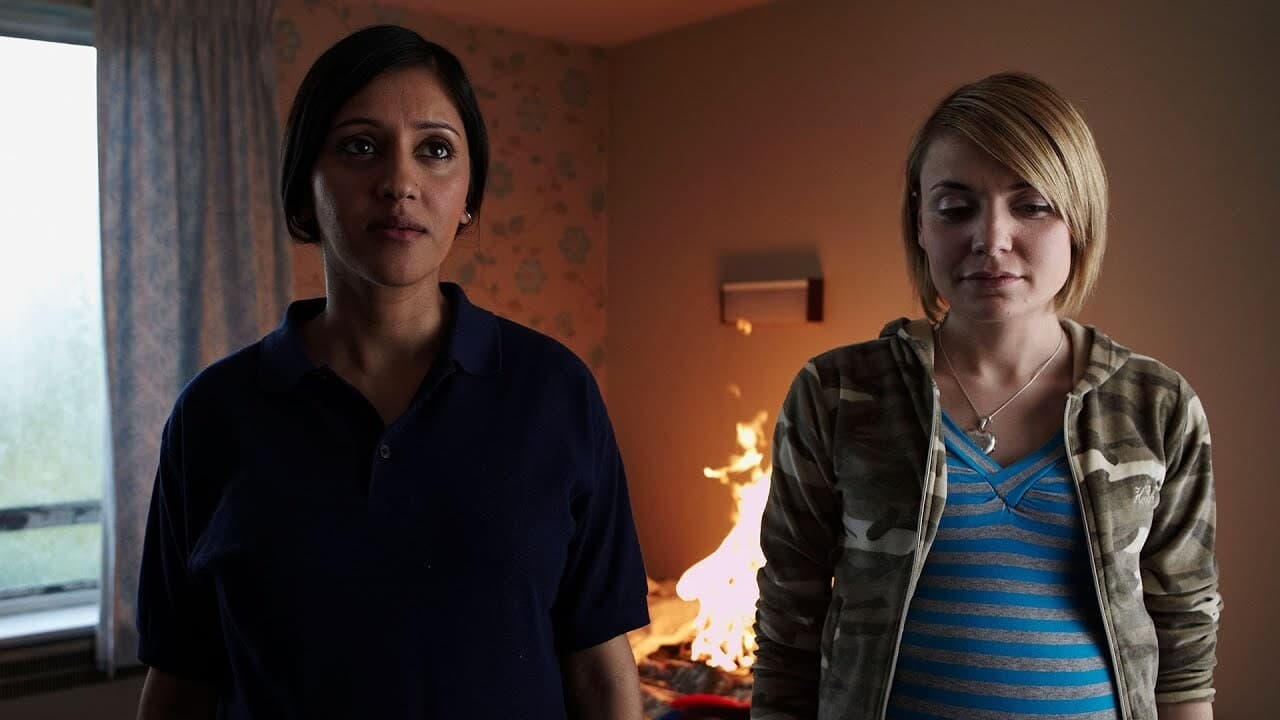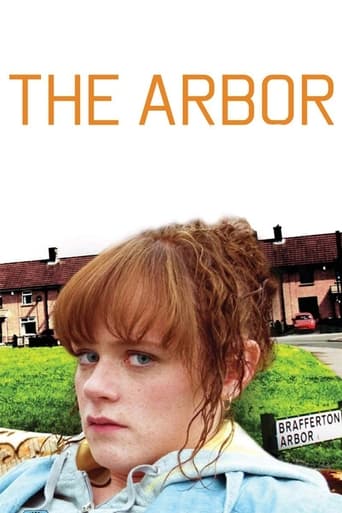



Very disappointed :(
hyped garbage
I have absolutely never seen anything like this movie before. You have to see this movie.
View MoreIt is a whirlwind of delight --- attractive actors, stunning couture, spectacular sets and outrageous parties.
View MoreI came to this film thinking that it was a documentary about the young writer Andrea Dunbar, who wrote the play (then film) Rita, Sue and Bob Too as well as a couple of other works before dying very young. I wasn't sure why I should be interested in her or her work but I had heard good things about the film (and had also seen Clio Barnard's previous short films) so I decided to give it a go. What I found was a film that wasn't really about Andrea Dunbar so much as it was the life of her mixed race daughter Lorraine.In telling this story the film not only tells us about Lorraine's life but also gives us the context by filling in who her mother was (mainly from old BBC documentaries that Lorraine watches) but also shows us what the estate is like by enacting parts of her play on the estate. It is a very creative approach and the blend of documentary and drama compliments each other since the original play was so real as to be a documentary and the real story of their lives is so engaging that it could have been a scripted drama. The film captures this really well and the various sections and threads just fit perfectly together – you are being told about different people in different ways but it never feels like anything other than one story.I didn't know any of this story so for me it really did impact to hear about the damaged lives coming out of this world (a world shown to us through the play). Assuming others do not know either, I will say no more on the content but it is brutal and saddening but rewarding thanks to how it is told. Much like her short films, Barnard approaches this as a documentary of real people telling stories but where in her shorts I think she hurt the films by having overly distracting images and cutaways as part of her design, here her visual content does nothing but add to the telling. Her "visuals" are actors lip-synching with the recorded word of the real people. The word "lip-synching" has negative connotations – it means pretending, faking it etc in regards music but here it is a great device. The actors not only hit their marks in regards the words, but they do so in a way where they make the words come alive. Virk is tragically brilliant and makes her character sympathetic without making excuses for her; she holds the attention and brings so much out in face and body. Gavin is great as the "girl" in the play – it is her role to help us understand the Dunbar not shown in the BBC interviews, and she does this really well. Down through the cast everyone delivers and they succeed despite the limits of not only the words they have to say, but the nuances and the timing of those words – the majority of the cast have little freedom to move but yet they deliver great performances.Barnard was showered with praise for this film and rightly so. It is engaging in its telling of this brutal and fascinating family story and it is done with creativity. The blend of documentary and drama is really well done whether it is in the grand scheme of things or even in the smaller detail such as setting the play sections on the estate with people watching in the background. It is not a cheerful film but yet it is a very good one and it is very much worth seeing. I've had issues with some of Barnard's work before, but with this I have almost no reservations about it.
View MoreThe Arbor is a very interesting movie . Unique in the way it is filmed , with actors lip sinking the words of real people who are being interviewed about the life of playwright , Andrea Dunbar.The only work that i have seen of Andrea Dunbar is ' Rita , Sue and Bob too ' a bawdy drama from the 80's. I had no idea the writer if this film lead such a tragic life and that her children suffered so badly too.While i admire the way this film is made and the obvious skill of the actors and director , i'm still not sure this film totally works. I struggled at times to stay with this movie and i feel it would have benefited from being half an hour shorter.The Arbor is an experiment that has too much going on for my liking but well done to Clio Barnard for attempting such an ambitious project.
View MoreClio Barnard's biographical documentary gives a multifaceted portrayal of British dramatist Andrea Dunbar and her family.Andrea Dunbar grew up with seven siblings in suburban housing estate Bafferton Arbor in Bradford, England. At the age of 15 in the early 1960s she began writing her first play "The Arbor" which described the experiences of a pregnant teenager who was abused by her drunken father. Her first play had it's premiere at The Royal Court Theater in London 1980.Through interviews with family members, neighbours and colleagues, this genre varied documentary/theater setup/feature film depicts the short though momentous lifetime of playwright and mother of three Andrea Dunbar (1961-1990), centring on the strained relationship between her and her daughter Lorraine. "The Arbor" is eminently directed by English filmmaker Clio Barnard who with characterizing close ups and subtle camera movements creates sharp and prominent portraits of men and women. The color harmonic cinematography from Ole Bratt Birkeland interacts and forms strong contrasts to the overt stories and the unwitting mood which is partially relieved by the theatrical and vibrant scenes which recreates parts of the playwright's debut performance "The Arbor" from 1977. Even though the acting is vivid and expressive in the earlier mentioned scenes, the film is most convincing in the interview scenes where lip-sync was used by professional actors. The pace varies in accordance with the takes shifting length and the versatile narrative makes this gripping character portrait an archetypal full-length documentary debut where faith plays a central part.
View MoreIf you've seen Alan Clarke's wonderful 'Rita, Sue and Bob Too!' (UK 1986), you'll have some idea of what to expect from 'The Arbor'. "The Arbor" is a small part of the Buttershaw Estate in South Bradford where Clarke's film was set. Clarke's film was adapted from her own play by Andrea Dunbar, a 20 year-old single mother in 1982 when the play first appeared. She had written her first play also called 'The Arbour' when she was still at school and a third, 'Shirley', in 1986 before she died suddenly from a brain haemorrhage aged just 29.Knowledge of 'Rita, Sue and Bob Too!' will only help a little, however. This film, 'The Arbour', is part inspired by but is not an adaptation of Dunbar's play. Instead it is a form of documentary about Dunbar and her personal legacy that turns out to be mainly about the equally difficult life of her first child, Lorraine.The film is written and directed by Clio Barnard who has Bradford connections. She visited the Buttershaw estate in 2009 and interviewed members of the extended Dunbar family and some other residents. She then borrowed the idea of hiring actors to lip-synch the recorded interviews (in A State Affair, a play by Robin Soans about the Buttershaw estate, actors spoke the words of the people Dunbar knew). Scenes with the actors were shot on the estate and in a London studio. They were edited together with two other kinds of material – scenes from 'Rita, Sue . . .' and from arts and news programmes about Andrea Dunbar plus scenes from 'The Arbor' play, acted out on the 'green' on the estate.So, what does it all mean? I'm honestly not sure. Technically it is very well put together. I found myself moved by several scenes. At other times I felt like I didn't want to watch. I think that my personal preference is for a social-realist drama, but I recognise that the approach here is very powerful. My only real problem was in the casting of George Costigan as one of the actors reading the words of one of the fathers of Andrea Dunbar's children. Costigan was 'Bob' in Rita, Sue . . . and I found this an intertextual step too far.Clio Barnard has, I think, previously produced video installations and sometimes I felt that I was viewing an installation. I found the initial stages confusing as they moved backwards and forwards in time, but eventually the film developed a distinctive narrative line focusing on Lorraine and this made it more like a traditional documentary film.The Arbor appears to be attracting audiences to the National Media Museum's cinemas. Bradford audiences will probably have a rather different take on the film than the London critics who celebrated its success in winning two prizes at the London Film Festival this week.
View More